Table Jeetne Layak Hai Ya Nahi? Yeh 1 Sign Dekhkar Turant Decision Lo!
We’ve all had that feeling of being trapped. You join a Rummy or Teen Patti table after your 91 club login. The first few hands are brutal. You get terrible cards. The players next to you seem to be winning every single pot. Ek ajeeb si negative vibe hoti hai table par. You feel like you’re just bleeding chips, hand after hand. But you stay. Why? Because of hope. “Agla haath aacha aayega.” “Abhi toh jeetunga.”
Or the opposite scenario. You join a table, and it feels… easy. Too easy. The other players are making obvious mistakes. They’re discarding cards you need. They’re playing emotionally. You win a couple of hands easily. You feel like a shark in a pond full of fish. This is the dream table.
The frustrating thing is, most players don’t know how to tell the difference. We just join a random table and hope for the best. We leave our success completely up to chance. But pro players? They don’t hope. They analyze. They are constantly evaluating their environment. They know that winning isn’t just about the cards you have; it’s about the table you’re sitting at. Table jeetne layak hai ya nahi? This is a question they are always asking. And they have a secret. Yeh 1 sign dekhkar turant decision lo!
The Biggest Lie: “Every Table is the Same”

Let’s bust this myth first. From a technical standpoint, yes, every table on the 91 club official website uses the same certified RNG. The card distribution is fair everywhere. But the game is not the same. Why? Because the players are different.
I’ve gotta admit, this part fascinates me. Let me explain it with a cricket analogy. The pitch is the same for both teams. But if one team has Virat Kohli and Jasprit Bumrah, and the other team has a bunch of gully cricketers, is the game the same? Of course not. The players change the game.
Your job as a smart player is to be a good scout. You need to quickly figure out: am I on the team with Virat Kohli, or am I playing against him? This art of table selection in online gaming is a hugely underrated skill.
The 1 Sign: Are Your Opponents ‘Leaking’ Information?
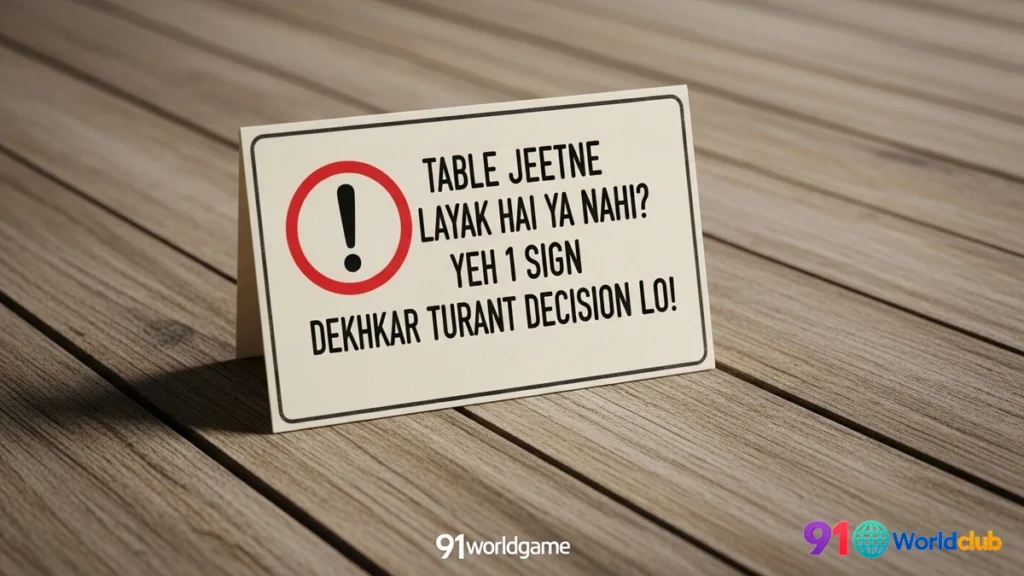
So, what is that one sign? Is it how much money they have? Their profile picture? No. It’s much simpler, yet much more profound. The one sign you need to look for is: How much information are your opponents giving away for free?
Let me explain this more clearly. Amateur players “leak” information. They are like an open book. Pro players are a locked vault. Your goal is to find a table full of open books. This is the core of any good poker and rummy table strategy.
Here’s what these “leaks” look like:
- The Obvious Discard: A player needs one card to declare in Rummy. The card they discard… is it a completely useless card, or is it a card that could have been part of another potential sequence? Amateurs throw away their most obvious useless card. Pros might throw a more confusing card to keep you guessing.
- Emotional Betting: Does a player suddenly start betting huge after losing a hand? That’s a “tilt leak.” He’s angry and playing emotionally. This is a huge sign of an amateur. We have a whole guide on emotional control that explains why this is a weakness.
- Predictable Patterns: Does a player in Teen Patti always ask for a sideshow when they have a pair? You’ve just spotted a pattern. You can now use this against them.
- Using Chat/Emojis Recklessly: Do they send an angry emoji every time they lose? They are revealing their emotional state. A pro player stays calm. We recently wrote about the new live emoji feature and how it can be used for this.
The ‘5-Hand Rule’: Your Personal Scouting Mission
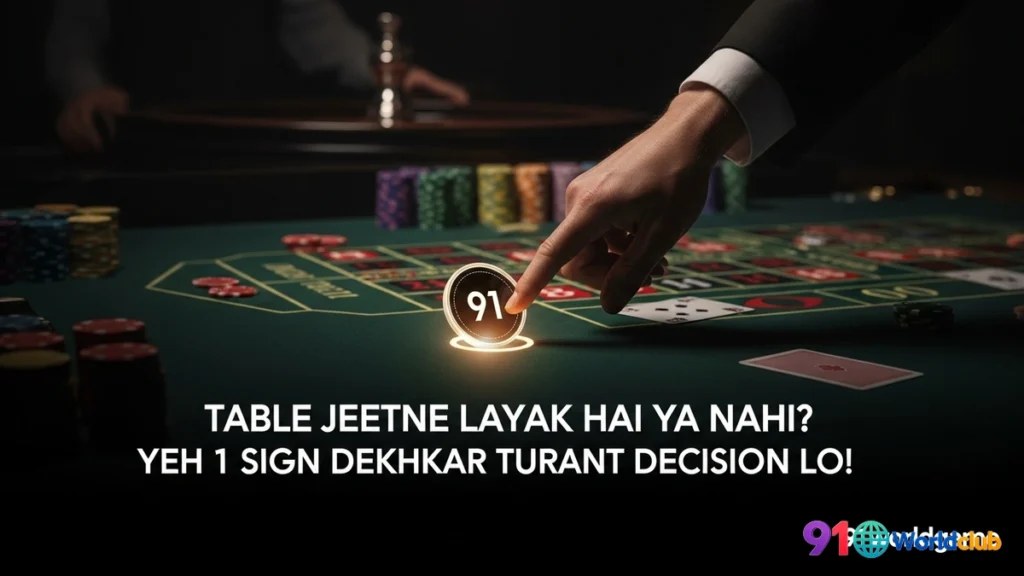
So how do you spot these leaks without risking your whole bankroll? You use what I call the “5-Hand Rule.” It’s a simple, disciplined approach to starting any new session after your 91 club game login.
Step 1: Join a Low-Stakes Table. Never start on a high-stakes table. Always start small.
Step 2: Play 5 Hands. But Your Goal is Not to Win. Yes, you read that right. For the first five hands, your primary goal is not to win money. Your goal is to gather intelligence. Play very defensively. Don’t take big risks. Your only job is to watch your opponents like a hawk. You are a detective at the scene of a crime, looking for clues.
Step 3: Ask the Big Question. After five hands, ask yourself: “Am I the smartest player at this table?” Be brutally honest. Have you spotted at least 2-3 other players making obvious mistakes or “leaking” information?
- If the answer is YES… Congratulations. You’ve found a profitable table. Stay. Play your game. You have an edge. This is how to find weak players online.
Step 4: The Pro Move – LEAVE THE TABLE. There is no shame in leaving a table where you don’t have an edge. In fact, it’s the smartest thing you can do. Your ego will tell you to stay and fight. Your logic should tell you to leave and find a better battle. Go back to the lobby and find another table. Repeat the 5-Hand Rule. This is a core part of the pro gamer mindset, which we discuss in detail on our pro strategy page.
I keep coming back to this point because it’s crucial: The game is not just about the cards; it’s about the people. Choosing your opponents is as important as choosing your cards. To find a variety of tables and opponents, you can always visit the 91club.com login page or communities like 91-clubs.org.
So, the next time you join a table, don’t just hope for good cards. Become a scout. Look for the signs. And if the table doesn’t feel right, have the courage to walk away. That’s not losing. That’s winning.
Frequently Asked Questions (FAQs)
Main kaise pehchanu ki ek player pro hai ya amateur?
Look for consistency and discipline. A pro player’s moves will be hard to predict. They won’t show much emotion through emojis or chat. They will manage their pot size well. An amateur, on the other hand, will often play recklessly, bet emotionally, and make obvious mistakes.
Agar table par sabhi players aache hain, toh kya mujhe khelna chahiye?
Playing against better players is the best way to learn and improve your own game. However, you should only do it on very low-stakes tables where you can afford to lose. See it as a training session. Never play against a table full of sharks on a high-stakes table.
Yeh strategy har game par kaam karti hai?
Yes, the principle of “table selection” is crucial in any multiplayer skill-based game, including Rummy, Teen Patti, and Poker. The specific “signs” of a weak player might change from game to game, but the core idea of finding a table where you have an edge remains the same.
Toh, in short, “jeetne layak table” ka 1 sign kya hai?
The single biggest sign of a profitable table is when you can clearly see at least one or two other players consistently “leaking” information – through emotional betting, predictable discards, or reckless play. If you can’t spot the weak player (the “fish”) at the table within a few hands, it’s probably you.






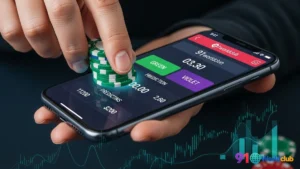


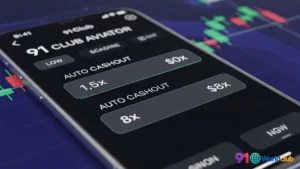
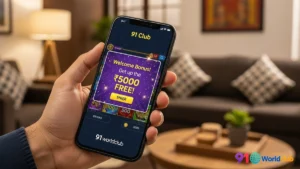
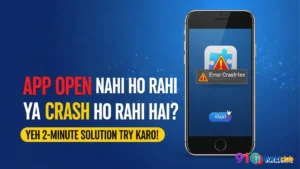
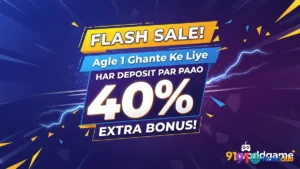
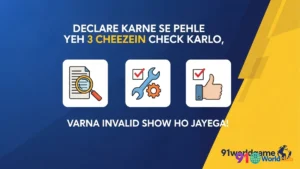
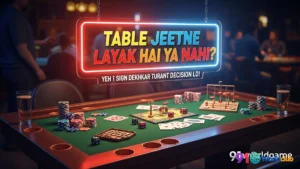
Post Comment